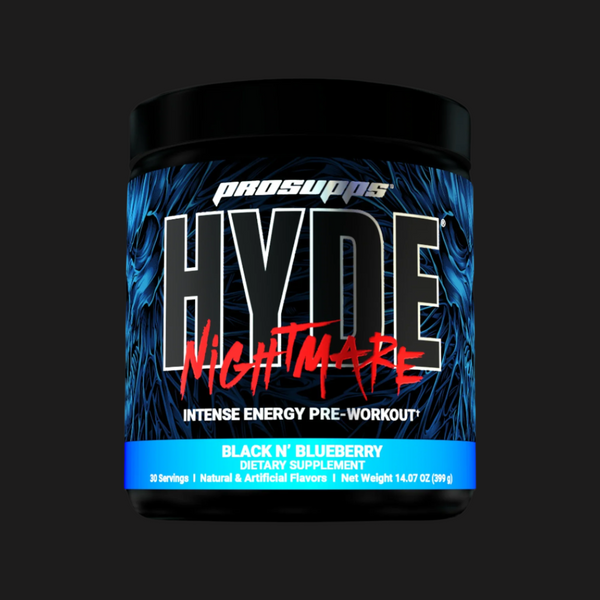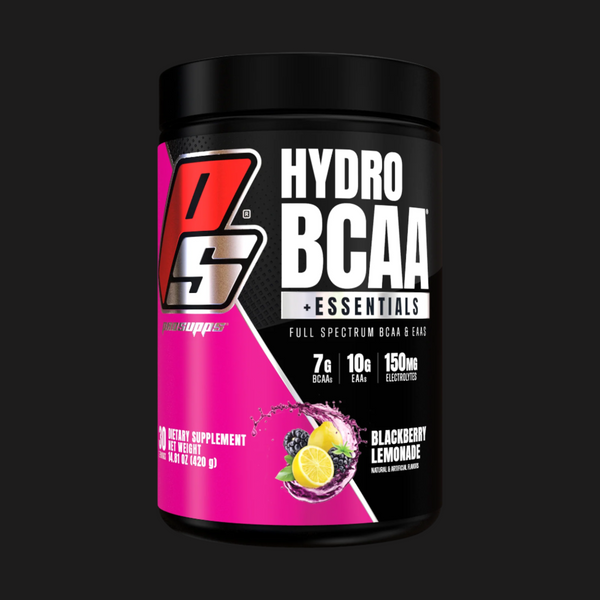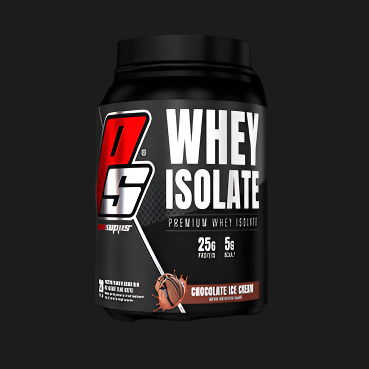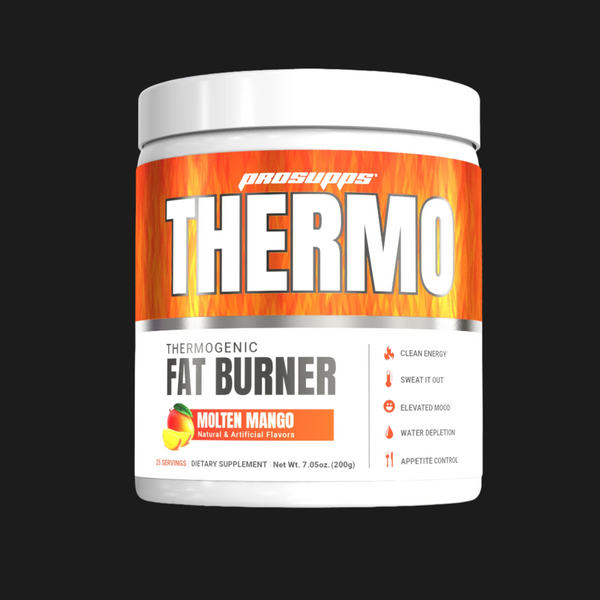Understanding nootropic pre-workout & its performance benefits
 Written by Pri Prunella
Written by Pri Prunella November 17, 2025
In recent years, nootropic pre-workouts have taken the fitness world by storm. Unlike traditional pre-workouts that primarily target energy and endurance, nootropic pre-workouts combine physical performance with mental focus. Athletes, gym enthusiasts, and even casual exercisers are discovering that the right pre-workout can not only fuel muscles but also sharpen cognitive performance, motivation, and coordination.
So why are nootropic pre-workouts trending? It’s simple: as workouts get more intense and schedules get busier, athletes need more than just energy; they need mental clarity, focus, and drive to perform at their peak. This guide dives into what nootropic pre-workouts are, how they work, the key benefits, top ingredients, and tips for selecting the best options in 2026. We’ll also explore stim-free alternatives for those sensitive to caffeine or other stimulants.
What is a nootropic pre-workout?
When you hear the term "nootropic," think brain-boosting supplements. In the context of pre-workouts, nootropics are ingredients that support mental function, enhancing focus, memory, and motivation, all while you train.
So, what is a nootropic pre-workout exactly? It’s a supplement designed to optimize both mind and body performance simultaneously. Traditional pre-workout supplements often emphasize energy, endurance, and strength, but a nootropic pre-workout goes a step further, providing ingredients that improve mental clarity and cognitive drive.
Athletes and fitness enthusiasts use nootropic pre-workouts to:
- Maintain focus during long or intense training sessions
- Enhance motivation and mental resilience
- Improve coordination and reaction times
- Reduce perceived effort during workouts
By combining mental and physical support, these supplements help you maximize your performance in and out of the gym.
Difference between nootropic pre-workouts & traditional ones
Both types of pre-workouts aim to enhance your performance, but the difference between the two lies in the types of cognitive support and stimulant balance.
- Traditional pre-workouts: Primarily focus on energy, endurance, and pumps. They rely heavily on stimulants like caffeine and often ignore mental clarity.
- Nootropic pre-workouts: Combine moderate stimulants or stim-free ingredients with focus-enhancing compounds. They support attention, reaction time, and mental resilience, in addition to physical performance.
What are nootropics in pre-workout?
Nootropics are compounds that enhance cognitive function. In pre-workouts, they often work by:
- Supporting neurotransmitters: Ingredients like L-Tyrosine and Alpha-GPC boost dopamine and acetylcholine, which can improve focus, memory, and mood.
- Increasing blood flow: Better circulation means more oxygen and nutrients to the brain and muscles, improving both mental clarity and endurance.
- Reducing stress and fatigue: Adaptogens such as Rhodiola Rosea help reduce cortisol, allowing you to sustain effort longer with less mental strain.
The synergy between mental focus and physical endurance is particularly important for athletes performing complex movements, high-intensity circuits, or sports requiring split-second decision-making. Studies show that combining nootropics with exercise can improve attention, motivation, and overall workout efficiency.
Key benefits of nootropics
Nootropic pre-workouts are designed to enhance both cognitive and physical performance. Key benefits include:
Improved focus and mental clarity
One of the standout advantages of nootropic pre-workouts is their ability to enhance focus. Ingredients like L-Tyrosine, Alpha-GPC, and Citicoline support neurotransmitters such as dopamine and acetylcholine, which play a crucial role in attention, memory, and mental sharpness. For athletes, this means staying fully engaged during complex movements, heavy lifts, or high-intensity circuits. Research shows that L-Tyrosine supplementation can improve cognitive performance under stress, helping athletes maintain concentration during challenging training sessions.
Enhanced motivation and mood
Nootropic pre-workouts often include adaptogens and dopamine-supporting compounds that not only improve focus but also enhance motivation and mood. For example, Rhodiola Rosea has been studied for its ability to reduce fatigue and boost mental resilience, allowing workouts to feel more manageable and even enjoyable. A positive mindset during exercise can directly influence effort levels and persistence, leading to more productive and consistent training sessions.
Reduced fatigue and better endurance
By combining cognitive enhancers with energy-supporting compounds, nootropic pre-workouts help reduce perceived fatigue. Ingredients like caffeine paired with L-Theanine or adaptogens such as Rhodiola help athletes sustain longer sessions with less mental and physical exhaustion. Clinical studies indicate that these compounds can lower perceived exertion during endurance activities, allowing athletes to push harder without feeling overworked.
Quicker reaction times and coordination
Performance isn’t just about strength; it’s also about precision and timing. Nootropic ingredients can improve neuromuscular coordination and reaction time, which are critical for sports requiring agility, complex movement patterns, or split-second decision-making. For instance, Alpha-GPC has been shown to enhance acetylcholine availability, improving synaptic communication and reaction speed. This translates into better performance in exercises that require both physical and cognitive engagement.
Balanced stimulation without jitters
Unlike traditional high-stimulant pre-workouts, nootropic blends often combine mild stimulants with calming compounds such as L-Theanine. This creates smooth, balanced energy that improves focus and alertness without the jitters, crash, or anxiety commonly associated with large doses of caffeine. Studies have demonstrated that combining caffeine with L-Theanine promotes sustained attention and alertness while mitigating overstimulation, making it ideal for sensitive users or late-day workouts.
Top ingredients found in nootropic pre-workouts
A well-formulated nootropic pre-workout blends both mental and physical performance enhancers. Here are some of the most popular ingredients:
L-Tyrosine
L-Tyrosine is an amino acid that supports neurotransmitter production, particularly dopamine and norepinephrine. This enhances focus, motivation, and stress resilience during workouts.
Alpha-GPC / Citicoline
These compounds increase acetylcholine levels, which improves memory, learning, and neuromuscular coordination. Ideal for complex movement patterns or prolonged gym sessions.
L-Theanine + Caffeine
L-Theanine smooths out caffeine’s jitters while maintaining alertness. This combination is particularly effective for those sensitive to stimulants, giving energy without overstimulation.
Rhodiola Rosea
An adaptogen that helps reduce cortisol and combat mental and physical fatigue. It’s a popular choice for endurance and high-intensity training.
Lion’s Mane
This mushroom extract supports nerve growth factor production, aiding focus, memory, and overall brain health.
Creatine
While widely known for its muscle benefits, creatine also enhances cognitive performance by supporting energy metabolism in brain cells.
| Ingredient | Key Benefit | Typical Dosage | Ideal Combination |
| L-Tyrosine | Focus, stress, resilience | 500–2,000 mg | Alpha-GPC, Caffeine |
| Alpha-GPC/Citicoline | Cognitive drive, coordination | 250–600 mg | L-Tyrosine, Creatine |
| L-Theanine + Caffeine | Balanced energy and alertness | 100–200 mg L-Theanine + 100–300 mg caffeine | Rhodiola, Alpha-GPC |
| Rhodiola Rosea | Fatigue resistance, adaptogen | 200–400 mg | L-Tyrosine, Caffeine |
| Lion’s Mane | Focus, neuroprotection | 500–1,000 mg | Alpha-GPC, L-Theanine |
| Creatine | Muscle & brain energy | 3–5 g | Any combination |
How to choose the best nootropic pre-workout
When selecting the best nootropic pre-workout, there are a few things to consider:
- Ingredient transparency: Avoid proprietary blends that hide dosages.
- Dosage accuracy: Effective nootropics require proper dosing for noticeable pre-workout benefits.
- Third-party testing: Ensures purity, safety, and consistency.
Check labels for your specific goals: focus, energy, endurance, or stim-free options. A simple buyer’s checklist:
- Are dosages clearly listed?
- Does it include proven cognitive enhancers?
- Is it stim-free or low-stim if needed?
- Are there unnecessary fillers or artificial additives?
Best nootropic pre-workout options for 2026
Hyde Nightmare: is an intense, high-stimulant pre-workout powder built for high-performance athletes who experience an excessive amount of physical and mental stress.
- Key ingredients: Caffeine, Alpha-GPC, L-Tyrosine, Huperzine A
- Pros: Offers laser-sharp focus, explosive energy, and enhanced cognitive drive, making it ideal for those who want a truly intense pre-workout experience.
- Cons: The high-stimulant formula can be overwhelming for beginners or those sensitive to caffeine, and may cause jitters or an elevated heart rate if used excessively.
- Ideal for: Experienced athletes and gym-goers seeking maximum mental and physical performance during intense training sessions.
Dr. Jekyll Nightmare: is not your average stim-free pre-workout. Dr Jekyll Nightmare is built for athletes who train with focus and intention.
- Key ingredients: Caffeine, L-Theanine, Creatine, Nootropic blend
- Pros: Provides smooth, balanced stimulation without the harsh crash, supports focus, cognitive drive, and muscle performance simultaneously.
- Cons: Still contains stimulants, so late-day use may interfere with sleep for sensitive users.
- Ideal for: Users seeking a synergy between focus, energy, and physical performance—especially those who want sustained alertness throughout their workout.
Stim-free pre-workout options: For athletes or gym-goers sensitive to caffeine, or those who train later in the day, stim-free nootropic pre-workouts are an excellent choice.
- Pros: No jitters, no crash, and safe for evening workouts. Supports mental clarity and endurance even without caffeine.
- Cons: Lacks the immediate energy boost provided by stimulant-based pre-workouts, so it may not feel as “explosive” during high-intensity sessions.
- Ideal for: Caffeine-sensitive athletes, late-day training, or those who prefer clean, focused energy without overstimulation.
How to take a nootropic pre-workout safely
Using a nootropic pre-workout correctly is key to maximizing benefits while minimizing side effects. These supplements are designed to enhance both cognitive and physical performance, but improper use can reduce effectiveness or cause unwanted reactions.
- Timing: Most nootropic pre-workouts should be taken 30–45 minutes before training. This allows time for ingredients like caffeine, L-Tyrosine, and Alpha-GPC to be absorbed and start working. Taking it too early may result in the effects wearing off before you even finish your session, while taking it too late could interfere with post-workout recovery or sleep, especially for stimulant-containing formulas.
- Cycling: Continuous daily use of stimulants or high-dosage nootropic blends can lead to tolerance, meaning the effects become less noticeable over time. Cycling, using the supplement for a set period (ie, 4–6 weeks) and then taking a short break, helps maintain its effectiveness and reduces the risk of dependency.
- Combination: Nootropic pre-workouts can be combined with other supplements such as protein, electrolytes, or creatine to support both brain and muscle performance. For instance, creatine can complement Alpha-GPC for cognitive and muscular energy, while electrolytes help maintain hydration and endurance during long or intense workouts.
- Avoid: Always follow the recommended dosages on the label and consult a healthcare professional if you have medical conditions or are sensitive to caffeine. Additionally, avoid taking high-stim formulas too close to bedtime, as this can disrupt sleep quality and overall recovery.
For more on timing, check out how long pre-workouts last!
Final recommendations for athletes & gym-goers
Nootropics bridge mental and physical performance, enhancing focus, endurance, and coordination. Safe and effective use requires understanding the ingredients, following recommended dosages, and starting with stim-free or moderate blends before moving to higher-stim options.
FAQs
What does nootropic mean in pre-workout?
It refers to compounds that enhance cognitive function, memory, focus, and motivation while supporting physical performance.
Are nootropic pre-workouts safe?
Yes, when used according to label instructions. Avoid stacking high-stim products and consult a healthcare professional if you have medical conditions.
Are nootropics good for working out?
Absolutely. They improve focus, reaction time, and motivation, all of which can enhance workout performance.
Can beginners use nootropic pre-workouts?
Yes, start with low-stim or stim-free options to assess tolerance and avoid jitters.
How long do nootropics last during a workout?
Effects generally last 1–3 hours, depending on the ingredients and dosage.
References
- Malík, M., & Tlustoš, P. (2022). Nootropics as Cognitive Enhancers: Types, Dosage and Side Effects of Smart Drugs. Nutrients, 14(16), 3367. https://doi.org/10.3390/nu14163367
- Cappelletti, S., Daria, P., Sani, G., & Aromatario, M. (2014). Caffeine: cognitive and physical performance enhancer or psychoactive drug? Current Neuropharmacology, 13(1), 71–88. https://doi.org/10.2174/1570159x13666141210215655
- Clinic, C. (2023b, April 13). Should you try an L-Tyrosine supplement? A look at its benefits and side effects. Cleveland Clinic. https://health.clevelandclinic.org/l-tyrosine
- Wang, Z., Hazen, J., Jia, X., Org, E., Zhao, Y., Osborn, L. J., Nimer, N., Buffa, J., Culley, M. K., Krajcik, D., Van Den Born, B. H., Zwinderman, K., Levison, B. S., Nieuwdorp, M., Lusis, A. J., DiDonato, J. A., & Hazen, S. L. (2021). The nutritional supplement L-Alpha glycerylphosphorylcholine promotes atherosclerosis. International Journal of Molecular Sciences, 22(24), 13477. https://doi.org/10.3390/ijms222413477
- Di Liegro, C. M., Schiera, G., Proia, P., & Di Liegro, I. (2019). Physical activity and brain health. Genes, 10(9), 720. https://doi.org/10.3390/genes10090720
- Adaptogens. (2025, March 19). Cleveland Clinic. https://my.clevelandclinic.org/health/drugs/22361-adaptogens
- Gibson, N., Baker, D., Sharples, A., & Braakhuis, A. (2020). Improving Mental Performance in an Athletic Population with the Use of Ārepa®, a Blackcurrant Based Nootropic Drink: A Randomized Control Trial. Antioxidants, 9(4), 316. https://doi.org/10.3390/antiox9040316
- CITICOLINE: Overview, uses, side effects, precautions, interactions, dosing and reviews. (n.d.). https://www.webmd.com/vitamins/ai/ingredientmono-1090/citicoline
- Coull, Nicole & Watkins, Samuel & Aldous, Jeffrey & Warren, Lee & Chrismas, Bryna & Dascombe, Ben & Mauger, Alexis & Abt, Grant & Taylor, Lee. (2014). Effect of tyrosine ingestion on cognitive and physical performance utilising an intermittent soccer performance test (iSPT) in a warm environment. European journal of applied physiology. 115. 10.1007/s00421-014-3022-7.
- Ivanova Stojcheva, E., & Quintela, J. C. (2022). The Effectiveness of Rhodiola rosea L. Preparations in Alleviating Various Aspects of Life-Stress Symptoms and Stress-Induced Conditions-Encouraging Clinical Evidence. Molecules (Basel, Switzerland), 27(12), 3902. https://doi.org/10.3390/molecules27123902
- Razazan R, Hemmatinafar M, Imanian B, Jahaniboushehri N, Rezaei R, Nazemzadegan G. Performance-enhancing effects of caffeine and L-Theanine among Iranian elite wrestlers: a focus on cognitive and specific physical performance. J Int Soc Sports Nutr. 2025 Dec;22(1):2564238. doi: 10.1080/15502783.2025.2564238. Epub 2025 Sep 22. PMID: 40977612; PMCID: PMC12456047.
- Contato, A. G., & Conte-Junior, C. A. (2025). Lion's Mane Mushroom (Hericium erinaceus): A Neuroprotective Fungus with Antioxidant, Anti-Inflammatory, and Antimicrobial Potential-A Narrative Review. Nutrients, 17(8), 1307. https://doi.org/10.3390/nu17081307
GET LEAN
 Why You're Struggling
Can't Lean Out? Here's Why You're Struggling
Why You're Struggling
Can't Lean Out? Here's Why You're Struggling
We all know the feeling. You’ve been working hard in the gym, sticking to your diet and getting in your...
 Weight Loss
Choosing the Best Protein Powder for Weight Loss
Weight Loss
Choosing the Best Protein Powder for Weight Loss
Struggling to shed body fat and lean out? You might need to focus more on your nutrition, specifically your protein...
 Weight Loss
9 Ways to Speed Up Your Weight Loss and Burn More Fat
Weight Loss
9 Ways to Speed Up Your Weight Loss and Burn More Fat
Weight loss is a major goal for more than 40 percent of Americans. Is it something you’re working toward, too?
 Workout Routine
10 Tips for Building a Sustainable Workout Routine
Workout Routine
10 Tips for Building a Sustainable Workout Routine
Starting a fitness journey is an exciting time, but maintaining a sustainable workout routine can be challenging. From setting realistic...



























